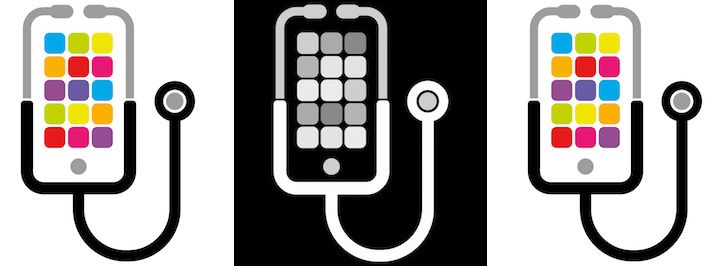mHealth: Powered by Potential but Dogged by Dubious Studies
Are patients as enamored with mHealth as hospitals want them to be?

It’s easy to understand why health systems are so interested in mHealth. Smartphones have been creeping into every facet of modern life for more than a decade, providing unprecedented access to huge patient populations. Even better, the phenomenon holds enormous potential to improve patient outcomes and save hospitals boatloads of cash.
But are patients as enamored with mHealth as hospitals want them to be? According to a combined systematic review of mHealth applications published January 17 in the Journal of Medical Internet Research, the short answer is, “not yet.”
“Although mHealth is growing in popularity, the evidence for efficacy is still limited,” wrote the study’s corresponding author, David Novillo-Ortiz, MLIS, MSc, PhD.
Part of that onus falls on the researchers who built the studies included in the review. Along with colleagues from the Pan American Health Organization in Washington, DC, Novillo-Ortiz found that the methodological quality of the 23 systematic reviews (371 studies of nearly 80,000 patients) was generally low when measured by the Measurement Tool to Assess Systematic Reviews (AMSTAR) checklist.
Their dubious quality leaves anyone looking to draw conclusions about the efficacy of mHealth forced to do so with a grain of salt. Of 23 systematic reviews, just 6 were rated as high quality (AMSTAR score 9-11). Conversely, 7 were rated as moderate quality (AMSTAR score 5-8) and 10 were rated as low quality (AMSTAR score 0-4).
For many specialties and conditions, the systematic review found that mHealth has yet to move the needle. But for others, its impact is evident. For example, quality evidence to suggest that a mobile app could could improve outcomes for patients with chemotherapy symptoms was lacking. On the other hand, patients with diabetes were shown to respond well to SMS reminders (the most common mHealth intervention identified by the review), which correlated with a significant boost in treatment adherence.
The systematic review identified moderate- or high-quality evidence to suggest that mHealth interventions resulted in positive outcomes in the following areas:
- Attendance Rates: A consistent improvement on attendance rates has been demonstrated through text message reminders, which improved the rate of attendance at health care appointments compared with no reminders (RR 1.10; 95% CI).
- Asthma: Positive impact has been demonstrated with moderate-quality evidence that text messaging interventions showed greater improvements in the pooled symptom score (mean difference 0.36, 95% CI) compared with a control group.
- Congestive Heart Failure: Mobile tech counseling led to fewer symptom complaints, with a relative risk reduction (20%) of death or hospitalization and better quality of life with nurse telephone intervention and cardiologist support.
- Diabetes: Educational group sessions for diabetic women via SMS showed positive effects on sleep, positive actions, and coping.
- HIV Management: Text messages to maintain contact, monitor, and respond to medication issues in patients on antiretrovirals showed statistically significant efficacy in improving medication adherence to reduce HIV viral load.
- Hypertension: Improvement in blood pressure has been demonstrated with SMS or voice mail and immediate physician feedback.
- Weight Loss: Moderate-quality evidence of short-term weight loss in overweight and obese adults with body mass indexes of 25-39.9 has been shown using mHealth structured programs.
- Physical Activity: 7 of 14 trials reported statistically significant benefits on self-reported physical activity outcomes, but no statistically significant change was demonstrated on trials using SMS to reduce calorie intake and reduce physical activity, or for trials targeting physical activity only, diet only, or physical activity and diet together.
- Smoking Cessation: Positive results have been demonstrated with moderate-quality evidence that mobile phone-based cessation interventions increased abstinence rates at 26 weeks in high-income countries.
In addition to HIV, the review found that mHealth interventions can increase adherence to treatment among patients with many conditions, including diabetes, hepatitis A and C, and asthma.
The study provides a “thorough review of available evidence on effectiveness of mHealth interventions in different health conditions, and in the processes of health care service deliver, so it is useful to guide clinical and health policy decisions,” Novillo-Ortiz wrote. Still, he acknowledged several limitations, including lack of assessment of risks, consumer satisfaction, and acceptability of the intervention.
“More attention to cost implications seems warranted,” he wrote. “Additionally, future studies should compare effects in different contexts.”
Newsletter
Get the latest hospital leadership news and strategies with Chief Healthcare Executive, delivering expert insights on policy, innovation, and executive decision-making.